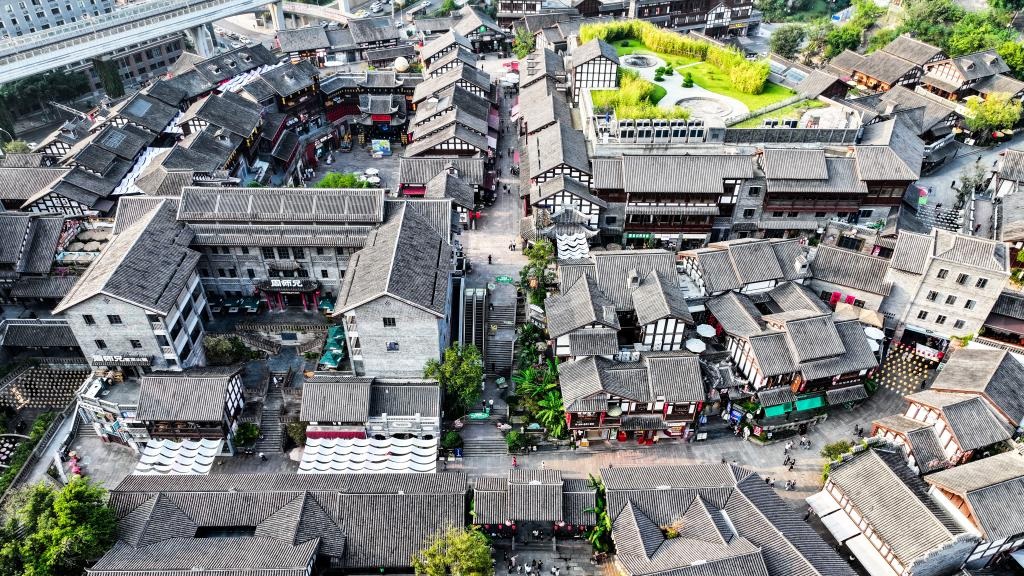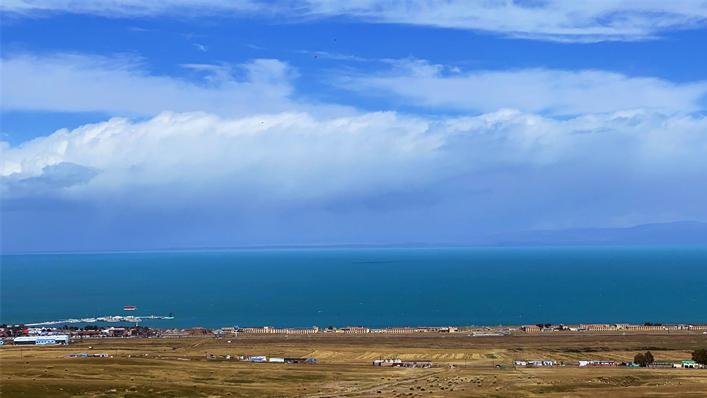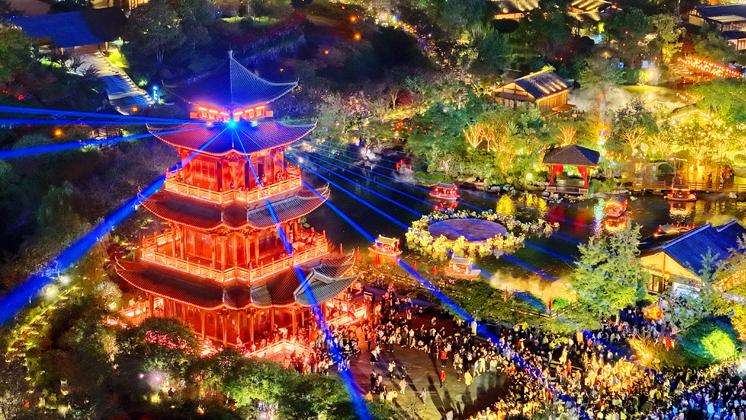Thomas Trotter: The language of music is universal
Every fortnight, Birmingham Town Hall hosts an amazing lunchtime organ concert. Thomas Trotter takes the stage, performing an inventive repertoire comprising Bach, Curzon, and Liszt. His masterful performance showcases the organ's sublime delicacy and magical power, captivating the audience.
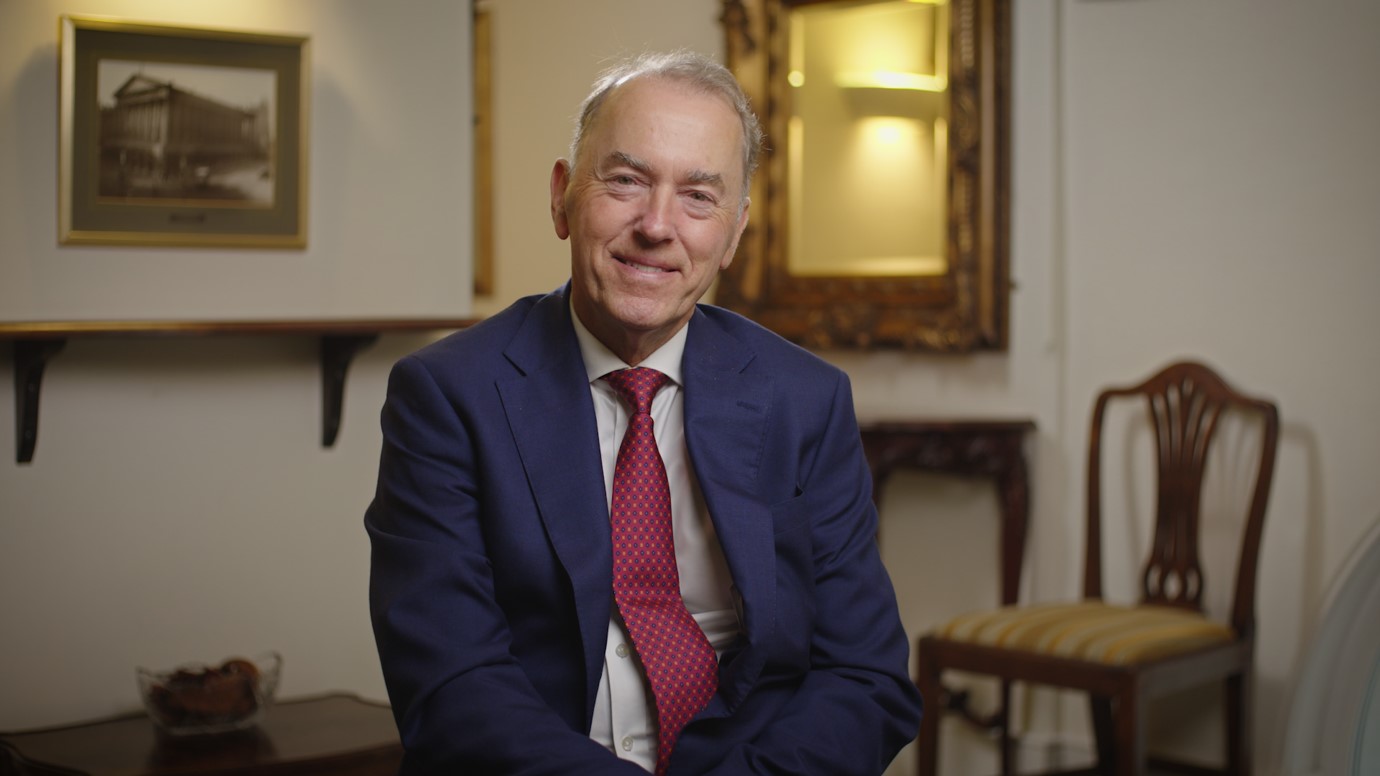
Thomas Trotter (Photo/Patrick Shead-Simmonds)
As one of the most esteemed musicians in the UK, Thomas Trotter has held the title of the City Organist of Birmingham since 1983. He is also an organist at St Margaret's Church, Westminster Abbey, and the Resident Organist at Gulangyu Island, Xiamen city in southeast China's Fujian Province. During an interview with People's Daily Online, Thomas Trotter remarked that there are no barriers in music, describing music as a universal language that transcends time and culture. He looks forward to collaborating with Chinese folk musicians in the future.
A journey with organ music
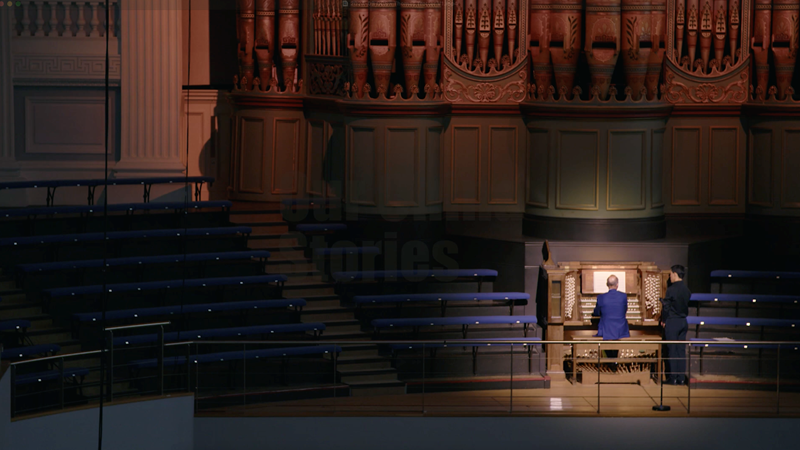
Thomas Trotter playing organ at Birmingham Town Hall (Photo/Patrick Shead-Simmonds)
People's Daily Online: As one of the leading organists in the world, what is the beauty of organ music for you? How did the organ become your long lasting passion?
Thomas Trotter: The organ is one of the oldest musical instruments in Western culture, with around seven centuries of repertoire. This spans from medieval music to the high Baroque era, featuring composers like Johann Sebastian Bach, Handel, and Couperin, as well as a vast Romantic repertoire from composers such as Reger, Franck, and Elgar. There is also a wealth of contemporary music. I love being able to choose from these different styles. The organ is like a chameleon, adapting its character to the music being played, and I think that's the main appeal for me—the incredible variety the organ repertoire offers.
I first came to the organ through the piano. I began piano lessons at age 5, and my piano teacher, who was also the school organist, introduced me to the organ when I was 11. From that moment, I was completely captivated by the range of sounds and possibilities the organ offers.
People's Daily Online: In the late 16th century, organs were introduced to China by Western missionaries, serving as a window for China to understand the West. Today more and more Chinese have turned into fans of organ music. What have you enjoyed most about performing in China?
Thomas Trotter: Unlike in Western culture, where the organ is closely tied to religion, China doesn't have the same historical association. Many of the Chinese concert halls feature large pipe organs built by European craftsmen, and I love that Chinese audiences don't have fixed preconceptions about what organ music should be. They view it more as a concert hall instrument, which is a setting I really enjoy performing in. Chinese listeners tend to be more open-minded about organ music compared to Western audiences, and I think that's why organ music is thriving there. It's wonderful to see people flocking to concert halls to hear Western organists like myself perform.
People's Daily Online: How can we expand the appreciation of classical and organ music, especially among young people?
Thomas Trotter: It's always a challenge to attract a young audience to classical music. As a performer, there are two key things you can do. First, you need to demystify classical music. That's why I always try to introduce the pieces I'm about to play, explaining why I enjoy them, the stories behind them, and the reasons they were composed. When the audience understands these elements, they can appreciate the music on a deeper level.
The second aspect is education. It's crucial to engage listeners when they're young. Music education in schools is vital, as it allows children to develop an appreciation not only for music but for the arts in general. Learning how to enjoy a piece of art or music is something that stays with you for life.
Art residency in Gulangyu

Thomas Trotter teaching students in a masterclass on Gulangyu Island in Xiamen, China (File photo)
People's Daily Online: Gulangyu is a beautiful music hub in China and in 2022 you became the Resident Organist of the Gulangyu Organ Arts Center. How did this opportunity arise?
Thomas Trotter: Gulangyu is very famous for its piano and organ museum. In July 2018, a large Romantic organ by the Canadian firm of Casavant was transported from a church in New York and reinstalled in a purpose-built hall in Gulangyu. There was a festival celebrating this renovation and installation, and I was invited to perform as part of the festivities. Subsequently, four years later, they extended an invitation for me to become the Resident Organist at the organ hall. Since then, I've visited Gulangyu every year, performing concerts and giving masterclasses.
People's Daily Online: Could you share with us about your visit to Gulangyu this year?
Thomas Trotter: When I visited in April, I gave two concerts in the organ hall and gave a masterclass to some very talented Chinese organists. The audience was very warm and friendly; after the concerts, they came up to me for photos and autographs. The masterclasses were quite interesting, especially given the language barrier. I don't speak Chinese, so I was assisted by a brilliant young organist who studied at the Royal College of Music in London and is fluent in both Chinese and English. I instructed the students in English, and she translated for me. I was very impressed by the students' abilities—they were sharp, receptive, and highly skilled organists.
People's Daily Online: What are some collaborations that you would like to foster with China in the field of music going forward? How do you see music as a bridge for cultural exchange?
Thomas Trotter: When I was appointed as the Resident Organist in Gulangyu, a group of folk musicians performed at the medal ceremony. One instrument they played, which resembled a guitar and might have been the ruan—it made a beautiful sound. There was also an instrument that looked like a zither. I would love to collaborate with Chinese folk musicians, perhaps combining the organ with the zither. Unfortunately, there isn't much repertoire for such a combination yet, but it would be an exciting area to explore.
Music is a universal language—it transcends borders and brings people of different nationalities and cultures together. A Chinese person can appreciate Western music just as much as a Westerner can appreciate Chinese music. It's a powerful way to foster cultural exchange.
Photos
Related Stories
- Vocal illusions: The magic of ventriloquism
- Traditional musical instrument strikes chords with youths
- Panda rockstar in the making!
- PLA Military Band performs during Military Music Festival in Moscow
- An unexpected choral tune-up
- Chinese orchestra holds concert to celebrate China-Hungary relations
- Trending in China | Dombra: a cultural treasure of the Kazakh people
Copyright © 2024 People's Daily Online. All Rights Reserved.






